Mohammad Azharuddin is now a senior Congress leader and a star campaigner for the party. Makes sense, you know. The Congress has become a party of losers, and nobody epitomises continuous failure better than Azharuddin – who captained the Indian Cricket Team for three terms. Under his leadership, Indian cricket suffered. It remained in a perpetual state of agony. People stopped watching cricket; they grew a distaste for it. Cricket no longer fascinated Indians. Azharuddin did all he could to bring the team down – keeping his selfish goals and ambitions over and above any national and patriotic considerations.
Azharuddin’s Pathetic Captaincy
Azharuddin led India unsuccessfully in three consecutive world cups in 1992, 1996 and 1999, even while his stint was marred by reports of rampant factionalism, continuous clashes, and poor organisation in the dressing-room culture. Playing 99 tests and 334 One-Day-Internationals overall, the cricketer had led India multiple times as a skipper. Azharuddin is a disgraced cricketer. He was found guilty of fixing matches and then banned for life in 2000.
Azharuddin took bribes and deliberately performed badly in crucial matches. As a captain, Azharuddin’s only victory abroad was a win against Sri Lanka in 1993. Interestingly, Sri Lanka in 1993 was akin to Namibia of 2022, a team that no one took seriously. Azharuddin’s lowest moment as a captain came when he led the team to the ground during the World Cup semi-final against the Sri Lankans at Eden Gardens in Kolkata.
Mohammad Azharuddin has a terrible overseas record. It is almost as if he played to make India lose and led the team with the same spirit. Players would not talk to each other, Azharuddin would not prepare tournament-centric strategies, leave alone those for singular matches. Navjot Singh Sidhu called it quits from cricket under Azharuddin’s rule, saying his captain laughs at him.
Kapil Dev, meanwhile, said there are too many “yes-men” in the team instead of “characters”. But don’t we all know why Azharuddin brought the Indian team down and reduced it into a disgraced entity? He took bribes to do so.
The Central Bureau of Investigation (CBI), which conducted the investigation into the match-fixing scandal, stated in a report that “The evidence against Azharuddin clearly establishes the fact that he took money from bookies/punters to fix cricket matches and also the fact that the ‘underworld’ had approached him to fix matches for them.” Even the Andhra Pradesh High Court did not absolve him of his crimes while lifting life ban on Azhar. Azharuddin was undoubtedly the “kingpin” of match-fixing in India, with “a criminal bent of mind”, and was considered a “Bhai” by dons like Anees Ibrahim, Chhota Shakeel, and Sharad Shetty.
How Azharuddin Brought Others Down
Azharuddin never had the best interests of the Indian team at heart, which is why he deliberately performed badly in certain matches – especially those that were captained by Sachin Tendulkar. Sachin’s clear instructions were openly defied by Mohammad Azharuddin during the St Vincent ODI match against West Indies. Chasing 250, India was once placed comfortably at 201 for 3 but managed to get bowled out for 231.
Azharuddin, along with other batsmen openly defied Sachin’s directive of not playing risky shots and winning the match without much of a blitzkrieg. Yet, that is what happened. A match which India had won, was lost due to Azharuddin’s larger-than-life ego and unwillingness to follow instructions like a team player.
During the Independence Cup, which was organised as a part of India’s 50 years of independence, Azharuddin made it clear he was not committed to the team. India failed to make it to the finals after losing to eventual champions Sri Lanka and arch-rival Pakistan.
Azharuddin was always a captain when India won, and he would go into hiding after every match the team lost. He was a master at hogging the limelight. When it came to leading the team through losses, however, he simply remained absent and would get annoyed if anyone pointed fingers at him.
A tainted man like Azharuddin should have never led the Indian cricket team. India must say ‘Never Again’ to men like him, who keep their own identity over and above their duty to the nation. And this includes saying no to the man in politics as well.





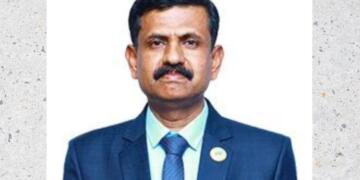




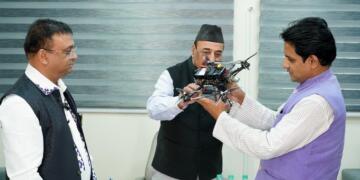







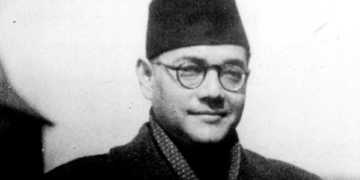
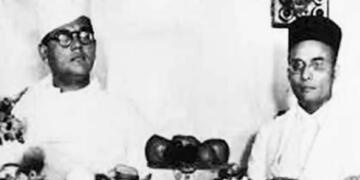






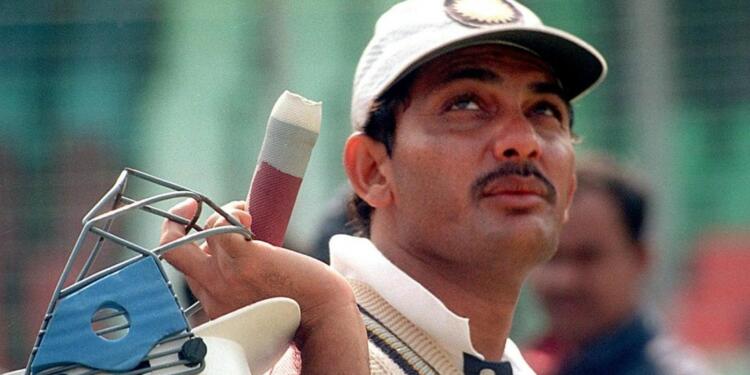





Seems this article is published by bjp IT cell
Your brain has gone for a stroll in the park. Check the statistics, crime records of this man, let’s leave his personal life aside. So, what did you find out after checking the facts? And why blame a political party for all his bad deeds? Speak on Kashmir, speak on Pulwama. Shall we blame terrorists, Muslims or Islam? On what basis was partition of country done? Did BJP exist then? Shameless people.
Absolutely right. And for reasons obvious. BJP/RSS IT Cell is known for distorting real facts of History for ulterior motives. Shame on Yellow Journalism.
I beg to differ. Azhar has brought many laurels to indian cricket. maybe there is a blackspot of fixings in later stages it cannot wipe out his earlier performances altogether.
Right. I have been through 80s following cricket and stats… He was hailed as one of the best captains back in his time. just because two decades have passed, you cannot bullshit anything..
This shows the tupical Hindutwa Mindset rapidly and dangerously being increased and promoted in Sab Ka Sath Sab Ka Vikas ‘India’!!!
Mohammad Azharuddin deserves more than that he got. He successfully fought for the grace of Indian Cricket after the Great Kapil Dev. Typical Hindutwa Mindset will never accept anyone except their own Cow Urine drinkers. Let the others also shine and live in Peace in this World.
Very well. Yes, Azhar deserves a full jail term for doing that to his own country who gave him so much. And also what did he do to Kapil Dev, just give 2 over of opening bowling and then replace with spinners. Lastly did you check any of his statistics outside the country as captain? You dog urine drinker?
I am a supporter of Modi and RSS.
But I strongly disagree with the tone and tenor of this article.
Shame on you TFI for publishing such a lousy article.
Azharudhin was as good as the team he had.The players who made debut in his period later on did perform very well for India as they matured.India started performing well only after John Wright became its coach.
These kind of articles are what makes people hesitant to support BJP.
Azzu was the best captain at that time and we won many important matches under his captaincy. This article is puke worthy and needs to be taken down as soon as possible.
Azzu was always dedicated to team interest. It was his idea to bring Sachin in as an opener which changed the course of history.
Also his match fixing charges were all proved baseless so there is no point in bringing those up.
Infact after 83 it was Azhar’s team which brought back interest in Indian Cricket.
2001
The fall of Azharuddin
SIDHARTH BHATIA
Facebook Twitter
Sidharth Bhatia in Delhi reveals how India’s CBI brought the bookies to book and dethroned an Indian hero back in 2001
The Central Bureau of Investigation is a shadowy organisation accustomed to chasing big fish rather than small fry. India’s version of Scotland Yard has examined allegations of bribery against the former Indian prime minister Narasimha Rao, and claims that backhanders were paid in the purchase of Bofors guns during the premiership of the late Rajiv Gandhi. The Indian government handed it the match-fixing inquiry because it wanted to make sure that no one got away.
The Delhi bookie Mukesh Gupta – aka John, or MK – soon found out just how ruthless the CBI is. Despite a high public profile, it rarely shows its face to the media. Its reputation is for meticulous investigation, but lately there has been criticism of shoddy detective work and a low rate of prosecutions. When it undertook the most far-reaching inquiry ever into cricket”s ill, it had something to prove.
Getting Gupta to testify was the CBI’s biggest break. Gupta, a jeweller by trade, was familiar with several Indian and international cricketers, and had been known to Indian police since the first whispers about match-fixing. An alert was sounded as far back as mid-June that he might try to escape India, and a close watch was kept on the country’s airports. Hansie Cronje provided corroboration of Gupta’s involvement when he confessed to the King Commission that he had been introduced to him by Mohammad Azharuddin in Kanpur in 1996. Gupta allegedly paid Cronje $40,000 for information.
When Gupta went into hiding, the CBI told his family that they were ready to take his 70-year-old father into custody if he did not surface. The threat worked. Gupta voluntarily walked into the CBI’s office and spilled the beans. Once he had cracked, the CBI had sufficient evidence to confront Azharuddin, Manoj Prabhakar, Ajay Jadeja, Ajay Sharma and Nayan Mongia – the five Indian players named in the November report.
When the relationship between bookies and players first emerged in the early ’90s, the bookies were only interested in getting inside information about the condition of the pitch, the final XI or, at best, a general assessment of how the match might go. Then they got smart and decided they wanted to influence the game too.
It was widely known among cricket followers and specialist journalists that large-scale betting was rampant all over India, even though it was illegal. In Bombay, I have seen warren-like offices where bookies handle calls from clients while matches are going on. The betting is not confined to results – it changes from ball to ball, over to over. Punters even place bets on field-placings and bowling changes. Individual players can, in theory, decide in advance how many runs they will score and when they will get out. The role of the captain becomes crucial. Thus, Azharuddin, Cronje and, perhaps, Alec Stewart, Brain Lara and Aravinda de Silva – all past captains, though their alleged role in match-fixing is unproven – are all vital links in the chain.
Right from the beginning, we knew that we had not only a tough but also delicate task at hand, says a senior CBI official. The celebrity status of the cricketers was one constraint; the CBI had no choice but to handle them with kid gloves, lest there be any allegations of harassment. Some of the players are also well-connected politically, always an important consideration in India, notwithstanding the CBI’s autonomous status. Most importantly, the CBI was aware that the legal implications of the players’ alleged wrongdoings were, to say the least, fuzzy.
There are two distinct strands to sleaze in Indian cricket: betting and match-fixing. Though some of the suspects are involved in both, either as participants or as agents, the two activities would stand separately before a court of law. Betting in India is illegal (except in horse racing) and there are enough laws to prosecute violators, though the fines are negligible. Thus, the bookies could be tried under any of those laws.
But match-fixing – assuming such a thing can be proved – is a whole new ball-game. Try as they might, the CBI’s sleuths have failed to come up with convincing answers as to exactly how the players could be tried in court, no matter how damning the evidence. The only provision that could be applied is the notorious section 420 of the Indian penal code, which is used in cases of cheating and fraud. But who have the cricketers defrauded? And how can it be proved that giving information about the condition of the pitch is cheating?
According to informed sources, the best the CBI can do is to go after Azharuddin and Sharma, both of whom work for the government-owned State Bank of India and can be prosecuted as public servants. Here, too, it is not clear whether there is irrefutable admissible evidence. Azharuddin reportedly confessed that he had fixed three one-day matches; the first against South Africa at Rajkot in 1996, then Pepsi Cup matches in Sri Lanka in 1997 and Pakistan in 1999. But he was subsequently quoted in an interview denying that he was involved in any such activity. That cut no ice with the Indian Board, however, who declared Azhar guilty as charged late in November.
Dr Irani stated that he had never heard anything adverse regarding Tendulkar. In fact, in most of the matches where fixing was taking place, the clue was that the game would “be on” only when Tendulkar got out, because he was one player who could single-handedly win the match and upset any calculation.
But I understand that, in Azharuddin’s case, the CBI had in its possession photographs of him with well-known figures of the Bombay underworld – including at least one person whose name has been linked with terrorist bomb attacks in the city in early 1993. These photographs were discovered by Bombay police during their investigations into the bombings, but they did not follow it up by interrogating the cricketer. Sources say that Azhar crumbled under pressure when the CBI confronted him with evidence of his shady connections. Allegations that some of these underworld figures have been closely connected with matches played in Sharjah have been doing the rounds for a long time.
But does Azhar’s association with them, in itself, constitute a crime? Legal experts are not so sure. So far none of the players have been arrested, and even the raids by income-tax inspectors on the homes of major players – including former captain Kapil Dev – have produced nothing concrete enough to prove match-fixing. These raids have shown that some players have asset beyond their known means of income, and that they may not have paid taxes on their wealth – not a particularly unusual occurrence among rich Indians. But that does not prove wrongdoing in cricket matches.
Meanwhile, the government is pursuing a separate line of inquiry into the officials who rule Indian cricket. The homes of many of the game’s most senior administrators, including former ICC chief Jagmohan Dalmiya, have been raided by the CBI teams. They were investigating allegations that Board officials had colluded with representatives of the Indian state broadcaster Doordarshan in rigging the price for television rights – which the channel eventually paid, leading to a financial loss.
The legal aspects of that case are clearer: the officials are civil servants and, if they were involved in shady dealings, they can be prosecuted. But, though all these goings-on show that the game has become increasingly sleazy and that people at all levels are linked to the sleaze, the government is no closer to making the perpetrators pay for their sins in court. Azharuddin’s career may be in ruins but, at the age of 37, it was almost over anyway.
If the charges are ever field, as the various cases follow their tedious course through the Indian justice system, public opprobrium may be the only punishment that gets handed out. Even that is not a certainty. In India, cricket is almost a religion, and there is widespread disgust among cricket lovers that the game has been sullied.
Soon after news broke of the match-fixing scandal, attendances and television ratings fell to new lows. But victories in two one-day tournaments abroad brought back the fans, showing that public memory can be short. There have also been reports that betting is back in full swing. Under these circumstances, can anyone hope to really clean up the game?
He might have done good things few time(which I don’t see any). Even then match fixing!!! come on, i pity on mentality of people who defend a person who is cheater and doesnot have patriotic spirit!!! You might have bathed in perfume 1000 tmes, but dip in sh1t once you will stink for ever
When Names like Big Cricketers, Kapil, Alec Stewert, etc are name d in the same case even Mr. Jagmohan Dalmia – ICC Chief, no person’s name is been used why Only Azhar, because he is Muslim and current situation in India is Divide and Rule which was left by Britishers in India while leaving. You can’t blame those people because you don’t guts.
Please when this was the discussion raised around 10 yrs ago, nobody would have blamed him. Because of this Idiotic and unethical atmosphere you people had started playing this games. You should be ashamed of yourselves.
No words for this kind of discussions. Because …….. sorry to say.